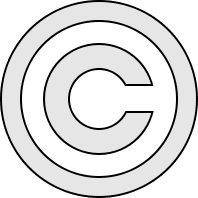This post was first published on 15th January, 2011.
In the era of “world wide web”, being a website owner comes with its own set of risks. One of such risks comes from the material posted on the website or from the look and feel of the website, which is often lifted from various sources without paying much attention to the “Copyrights”. Many of the website owners are not aware of what Copyrights are and what problems may occur due to incorporation of protected material on their websites. In simple words, website owners must abstain from copying anything on their website without taking the permission from the copyright owner. Scary as it may seem, few simple steps can protect the website owners from being held liable for any violation of copyrights of third parties.
For starters, a website owner needs to basically understand that Copyright is an exclusive right given to copyright owners, which includes the right to prevent others from reproducing a work, translating a work, adapting the work, publicly displaying a work, or distributing a work. The work in case of a website may include content on the website, photographs used on the websites, video files and so on.
Given the backdrop, the few steps that a website owner may take in order to avoid violation of the copyrights may be as follows:
1. Firstly, a website owner must always remember to take permission for a work that is not created by him. There may be various modes for taking such permission. A work may be copied directly, if the owner of the copyright himself has allowed such copying by way of incorporating a notice to that effect on his work. Having said that the website owner must understand the rights granted by the copyright owner and should use the copyrighted work in the manner as permitted by such owner of the copyright. In other cases, it is advisable to contact the copyright owner and ask for permission, which may be in form of a license or agreement to use the copyrighted work subject to certain terms and conditions such as manner of using, modifying, distributing, displaying, linking, framing and so on.
2. Secondly, if the work to be used on the website is created by a hired person such as a website designer under the instructions of the website owner, then though it is understood that the work is the copyright of the website owner, yet it is advisable to enter into an agreement with the website designer in order to ensure that the copyright of the content, photos, logo and so on is adequately transferred to the owner of the website.
3. Thirdly, a website owner must know that even in cases where the copyright work has been assigned that is transferred to the website owner with all the rights aforesaid, it should not lead to the misuse of the copyrighted work. Few rights still remain with the copyright owner in such cases, called as Moral Rights. The Moral Rights of the copyright owner give him exclusive rights to take an action against the website owner in case of no or false attribution to the copyright owner by the website owner or in case of damaging or tarnishing the copyrighted work that may harm the reputation and image of the copyright owner.
4. Lastly, a website owner must ensure that his own original work, that is the content developed by him, photographs taken by him, logo designed by him, audio or video files made by him, the interface of the website and alike must also be adequately protected. They may be protected by way of incorporating a copyright notice on the website. Berne Convention has specifically provided with the format of such notice, which is, Copyright [year of creation] [name of the copyright owner]. Website owner may also apply for the registration of the copyright, which is not mandatory. Among other steps, a website owner may also incorporate certain terms and conditions on his website binding the visitors on website to use the copyrighted material of the website owner in the manner as provided by the website owner.
A website owner may defend from any of the liabilities aforesaid of using a copyrighted work of a third party in case such usage comes under the purview of fair use (called as fair dealing in India), which lays the exceptions for the usage of the copyrighted work. The exception of not being held liable for the copyright violation by using third party copyrighted work is made available in cases where the copyrighted work is used for the criticism, review, news reporting, research purposes, and non-commercial educational purposes and so on. Having said that there is very thin line deciding the applicability of such exceptions and therefore, a website owner should ensure to guard himself from any of the liabilities by taking the aforesaid steps or actions.
Authored by Ms. Vintee Mishra Tiwari.
Image from Wikimedia Commons



